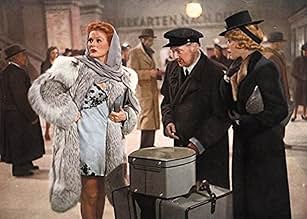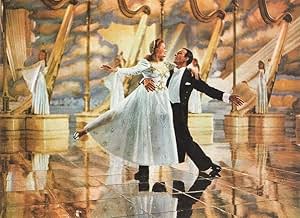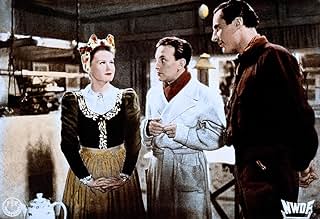After the completion of an exhaustive schedule, a theater actress by the name of "Julia Koestner" (Marika Rokk) decides that she needs a break from her director (played by Georg Alexander) who continues to insist that she continue on with further performances. So, to remedy that situation, she hurriedly boards a train to put some distance between them but, as luck would have it, her luggage is left behind at the station. To make matters even worse, she mistakenly gets off the train during a brief stop and finds herself stranded in the middle of the night with nobody around for miles. Fortunately, she eventually finds an engineer station where two men named "Peter Groll" (Wolfgang Lukschy) and "Erwin Forster" (Walter Muller) provide her with a place to stay for the night. Not long afterward, however, her rather entitled personality begins to annoy Peter--and this creates problems for all concerned. Now, rather than reveal any more, I will just say that this was an interesting film due in large part to the time and place in which it was made. As expected from a musical-comedy of this sort, there are several song-and-dance numbers which, to be quite honest, were all rather ordinary and needed the spectacular costumes and background scenery to really shine through. Likewise, for a romantic comedy, the chemistry between the leading actors was also somewhat subdued as well. Be that as it may, while certainly not on the same level as some of the better musicals produced by Hollywood, this film still had its moments, and I have rated it accordingly. Slightly above average.
























